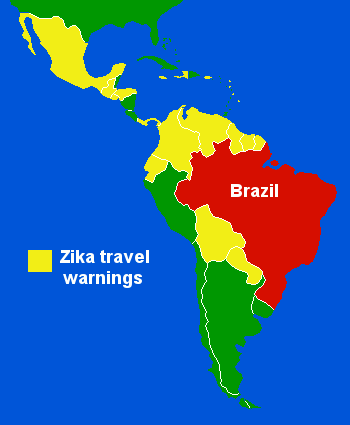
Circle the area on this map

D. With 122 million people, Mexico ranks second to Brazil's 205 million population. Latin America is the group of countries and territories in the Americas where Romance languages – French, Portuguese and Spanish - are spoken. Argentina, Chile and English-speaking Belize were not on the CDC list as of last Friday.
B. More than 5,000 suspected Zika cases have been reported in El Salvador, and its Central American neighbors Honduras and Guatemala also are on the CDC warning list.
C. “Morality says that people shouldn’t have that control” over procreation, the church spokesman said. “But the church also isn’t going to say something that runs contrary to life and health.” He also said the archbishop of San Salvador had not yet formulated an official response on the issue.
A. While transmission of Zika has been reported in Puerto Rico, cases also have been reported on the U.S. mainland among returning travelers. During the winter there is little chance of Zika spreading on the mainland, but the species of mosquito that spreads the virus is common in the southern states during warmer months.